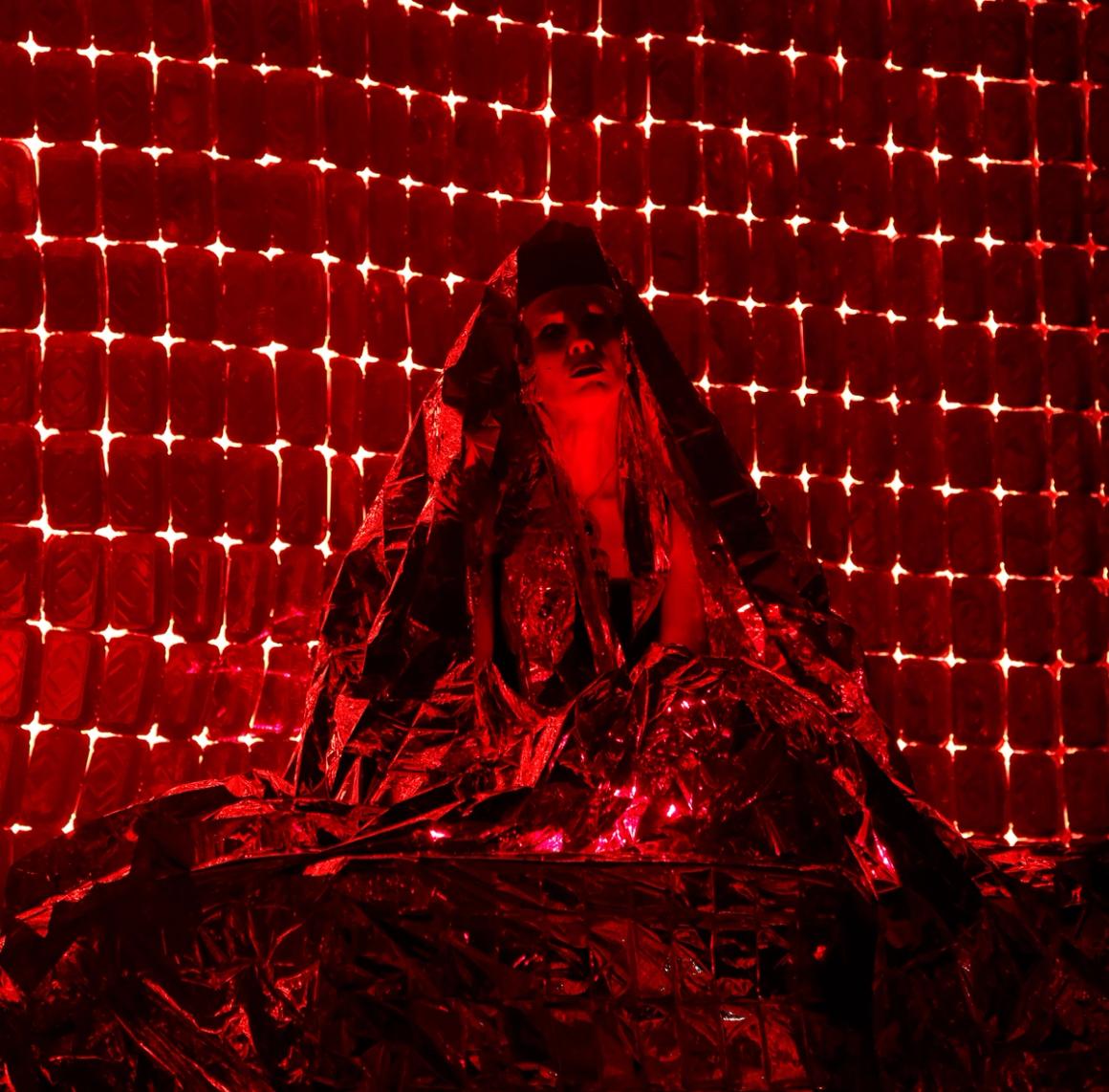Practising a New Genius

ORTA’s Communal Act of Transformation
On October 26, Voices Berlin presents a truly unique event — an immersive ritual-theater experiment by the art collective ORTA: a multi-stage rite with Berlin-based researcher-testers, fragile music, and an environment of 17,000 aluminium food containers, re-channelling Kazakhstan’s atomic legacy into creative force.
Marina Davydova,
performing arts programme director
Voices Berlin Festival:
“Voices Berlin 2025 gathers many of European theater’s star names — Milo Rau, Krystian Lupa, Sasha Waltz, Árpád Schilling. Even within that constellation, I underscore the importance of a guest from a less-charted point on the theater map — ORTA from Kazakhstan.
The New Genius Experience of The Great Atomic Bombreflector has already circled the globe: it represented Kazakhstan at the Venice Biennale, played at New York’s La MaMa, and appeared in Seoul. Now it comes to Germany for the first time, in a single, one-night-only performance — a rare chance before it travels on.
The piece lives in the charged space between contemporary art and contemporary theatre — which is why it fits both an exhibition pavilion and a black-box stage. As an installation alone, it is unforgettable: a powerful visual field that stays on the retina long after you leave. Inside that environment, a performance unfolds — a rigorously crafted action that is as participatory as it is spectacular. You do not sit quietly in the dark. From the first moments you are drawn into a gentle ritual, a game, an atmosphere that involves without pressure and opens a surprising vein of positive energy.
Its title signals a political and historical core. "Atomic" points to the Soviet-era nuclear testing carried out in Kazakhstan — a trauma that scarred the land and its people despite official reassurances to the contrary. The work addresses this legacy head-on. At the same time, it is rooted in the ideas of Sergey Kalmykov, the visionary artist who lived and died in Kazakhstan and uniquely carried the Silver Age avant-garde into the 1960s. Kalmykov argued that genius is not a heavenly gift but a practice available to everyone. ORTA takes that proposition seriously — the performance stages a transformation in which destructive force is re-channelled into the creative potential present in each of us.
The form of the performance is open, communal, and unexpectedly uplifting. You learn, you take part, and you leave changed — not radically, perhaps, but unmistakably.”
Sergey Kalmykov — genius as practice
Illustrator, decorator, writer, Kalmykov turned out to be the only avant-gardist of the Silver Age who survived into the late 1960s. He was “lucky”: forgotten in life. Remembered after death — and immediately recognised as an artist with no analogues. A genius. That recognition itself confirms his main theory — genius is a practice available, even obligatory, for everyone. ORTA takes him at his word and proposes to practise genius together with the audience.
The ground of the work — Kazakhstan’s nuclear legacy
The practice deliberately touches a wound. Around 2,400 nuclear devices have been detonated in world history — about 25 percent of them on Kazakh soil. Official reports once claimed, “Almost nobody was harmed.” The Great Atomic Bombreflector addresses this legacy and trauma, extracts them, and uses them for transformation.
What happens in the room
The premise is disarmingly simple — turn lethal energy into the energy of creation. Spectators enter and become collaborators. They wrap in foil, pull on soft felt caps, strike small sparks to light small bulbs, learn quick rhythms, sing one another’s names in chorus. At first it can look like mischief — purposefully so. The playfulness is a tool. Then the room shifts. The promised transformation becomes palpable — the charge that art usually reserves for those on stage spills into the audience.
Reports travel with the piece: in Moscow, a hundred serious adults strummed dombras; in Italy, spectators learned to spark light from a battery; in Seoul, tears stood in people’s eyes at the finale. The Bombreflector works — quietly and insistently.
Lineage and method
Rustem Begenov’s path runs through Russian theatre visionary Boris Yukhananov, and through work with Heiner Goebbels, Theodoros Terzopoulos, Romeo Castellucci. Yet the deepest imprint is Kalmykov — a genius of place whose method can be activated here and now, with whoever shows up. Faced with a landscape saturated by weapons, the response proposed is clear: art — a performance in which murderous force is transfigured into creative force, shared by all present.
Why it matters
This work will not radically change a life and will not stop a war. And yet — after it, life is not quite the same. The piece offers a carefully staged chance to feel transformation together, to redirect attention and energy, and to leave with a communal afterglow that lingers.
Related Events
26. Oktober um 17:00